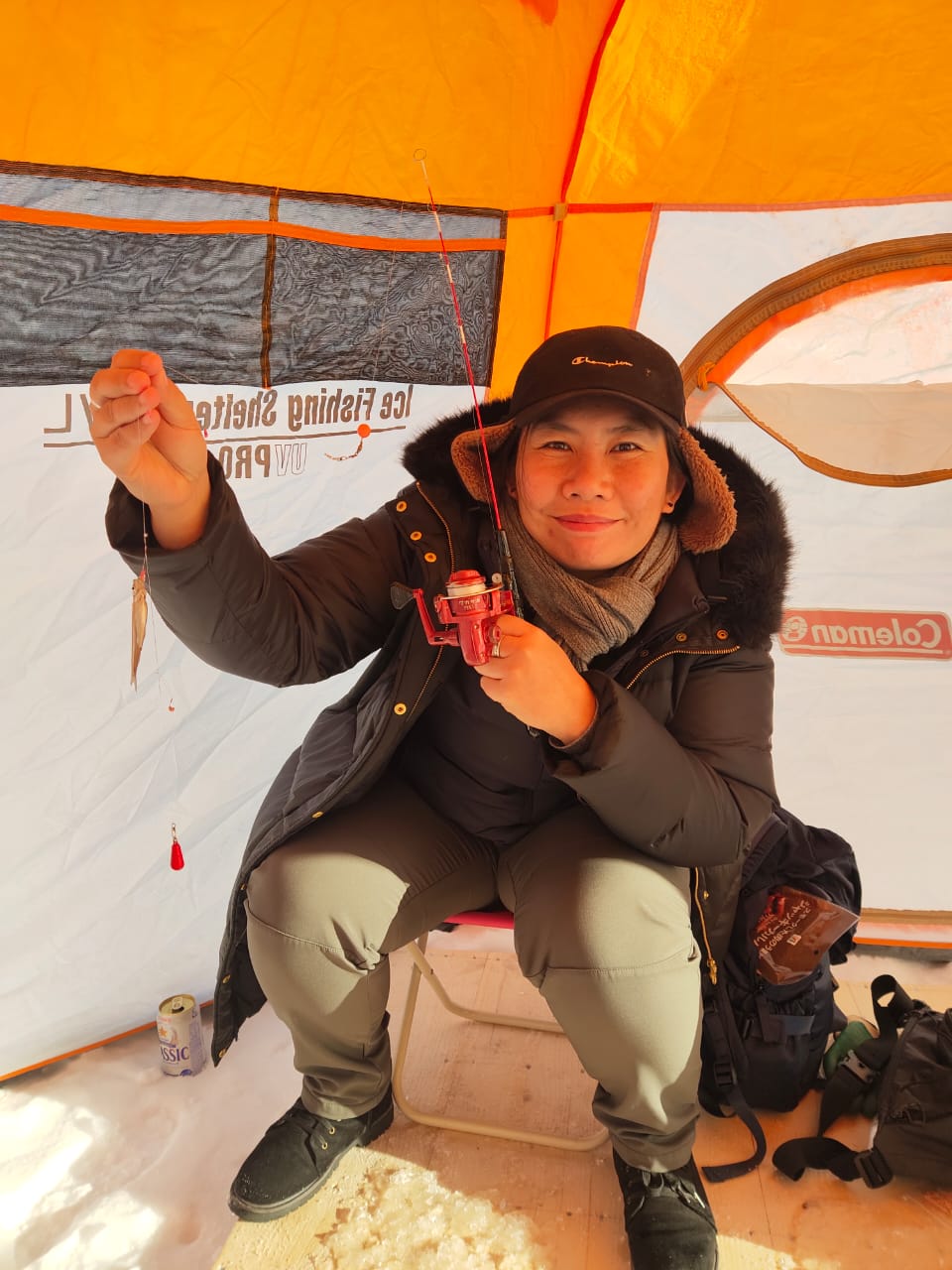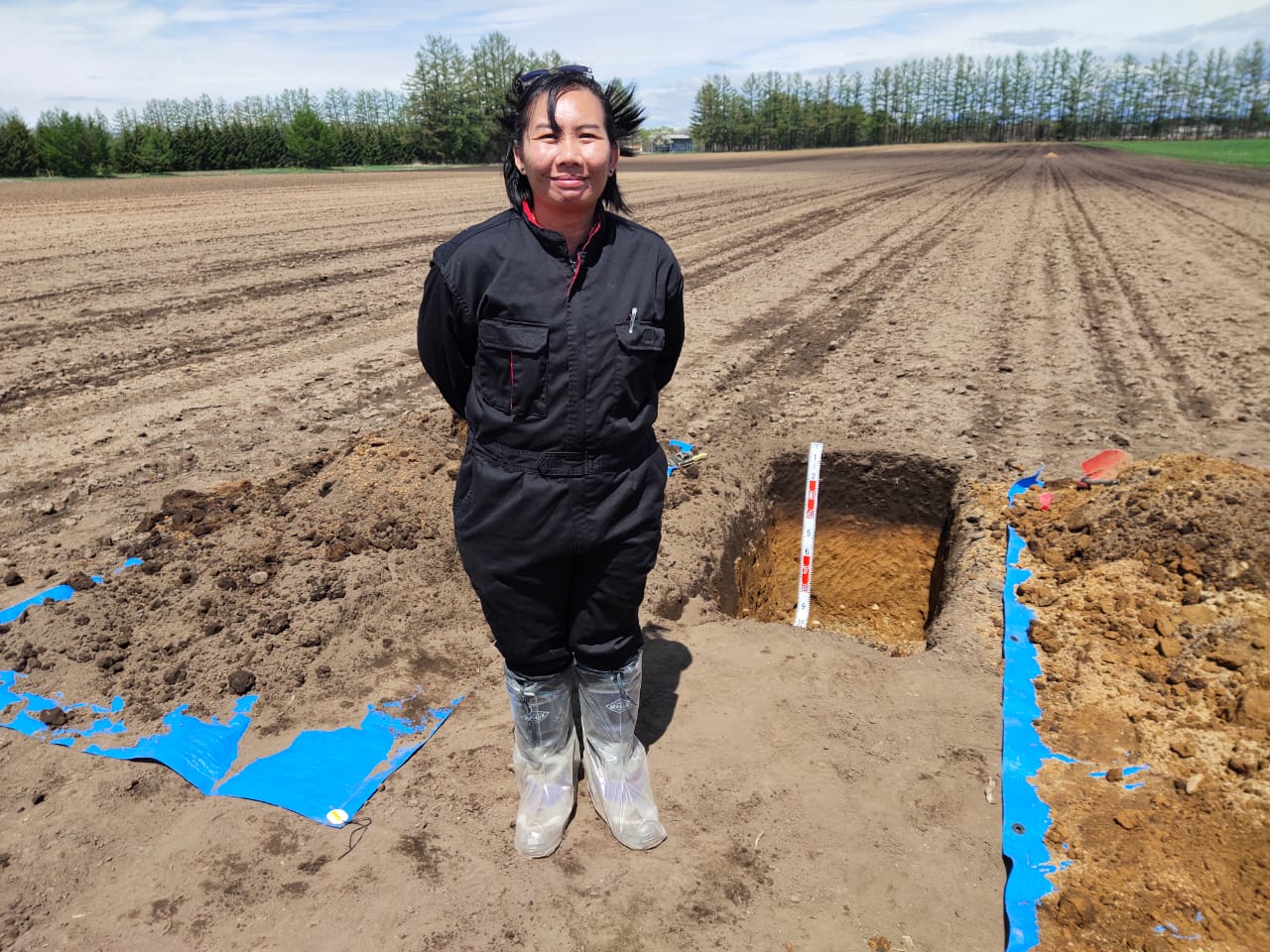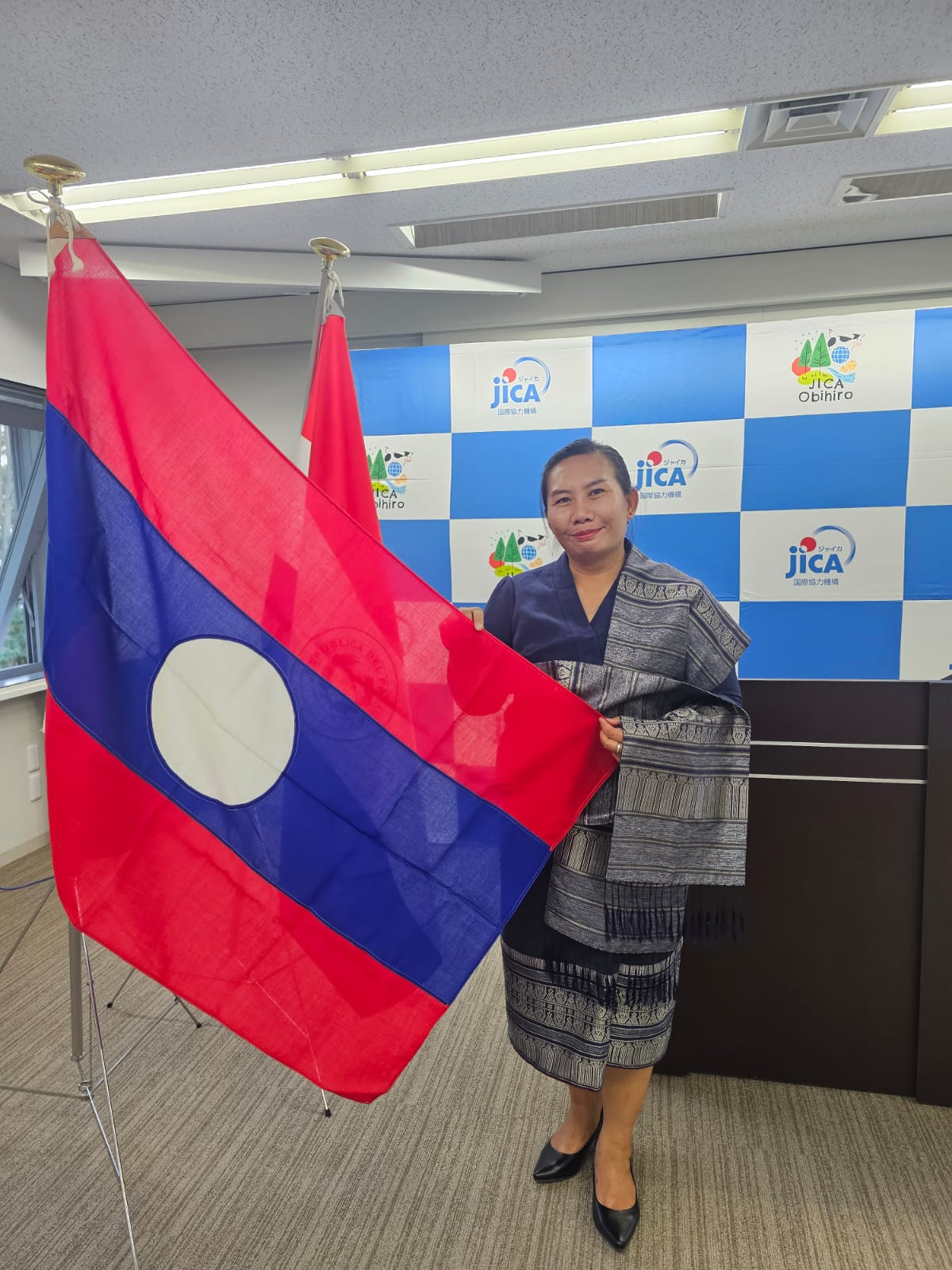【研修コース】帰国研修員からのメッセージ ―日本での留学生活を終えて―
2024.03.21
2023年9月までJICA北海道(帯広)の長期研修員として帯広畜産大学に留学していたラオスのヴィーさんからメッセージが届きました!
We have received messages from ex-participants of JICA KCCP (training program) in Obihiro! We will introduce each one in a series; here is a message from Ms.SOURIDETH Vilayphone, Laos. She stayed in Obihiro until September,2023 (The original English text follows Japanese.)
私は、ラオスや日本のようなパートナー国が、2国間の関係を強化する目的で実施されている知識共創プログラムの1つ、「食料安全保障のための農学ネットワーク(Agri-Net)プログラム」の研修員として、2020年に帯広畜産大学の博士課程に入学しました。当初は、2020年9月に来日予定でしたが、新型コロナウイルス感染症の拡大の影響で、来日が12月3日に遅れ、その後の隔離期間を経て、12月末にようやく帯広に来ることができました。
来日前は、ラオス農林省管轄下の国立農林業研究所(NAFRI)イネ研究センターで研究者として勤務し、トウモロコシを栽培したり、農業生産性を向上させて農家を支援するための穀物管理についての研究を行ったりしていました。2019年には、欠員が発生したため、同センターの土壌研究室長も兼務していました。ラオスにおける作物の生産性が低いことの主因の1つとして栄養管理の課題があり、また、土壌研究室の水準向上のために知見を深めたいとの思いから、土壌科学について博士課程で研究したいという情熱が湧き上がりました。適切な土壌栄養管理は作物の生産性を向上させるだけでなく、その持続可能な作物生産にとっても不可欠だからです。2019年に帯広で実施されたJICAの課題別研修「持続的農業生産のための土壌診断と土壌改良技術」に参加した時に、コースリーダーであった谷昌幸教授の研究室が有している農業分野の専門性と卓越したご経験を知って、帯広畜産大学に入学したいと思いました。
博士課程在籍中は、ケイ素系養分が北海道の土壌における小麦の生育と品質に及ぼす影響について研究していました。素晴らしい指導教員2名の綿密なご指導とサポートの下、研究室での試料分析とフィールド調査を行い、十勝地方の土壌について徹底的に理解しようとしました。帯広での3年間の研究は、3回にわたる学会発表として結実し、日本全国の土壌学研究者と貴重な交流をしたり、研究活動の経験について情報交換したりして、自身の研究を高めていくことができました。
私は社交的な性格なので、新型コロナウイルス感染症拡大による制限の下の帯広で過ごした初めの2年間の生活は簡単なものと言えませんでした。制限が解除された後は、研究生活に加えて、北海道を旅行し、美しい自然や文化、素晴らしい食事に触れることができました。十勝平野は私が日本で訪れた中で最も美しく、とても色鮮やかな場所です。その美しさを知り尽くすには1つの季節だけでは不十分であり、大地が緑色の作物であふれる夏、一面の銀世界になる冬を、それぞれ観る必要があります。

雪景色のとても美しい冬は私の好きな季節であり、氷上でのワカサギ釣りは忘れることのできない思い出です。北海道で為すべきこととして、是非ワカサギ釣りをして、ワカサギの天ぷらを食することをお薦めします。帯広で私が最もお薦めする食べ物は十勝豚丼で、どの季節でも堪能することができます。

私が帯広で過ごした時間は、日本人や様々な国から来た友人、先生や地域の人々など、親切、協力的で、思いやりのある人たちに囲まれ、素晴らしいものでした。大学での活動、JICAや十勝インターナショナル協会、帯広畜産大学留学生会とのボランティア活動を通じて、多くの友人ができ、日本人や色々の国と友人と文化交流をして、素晴らしい思い出を作ることもできました。

清水町の草地で/Grasslands in Shimizu town
最後に、素晴らしい奨学制度で留学プログラムを通して、私が日本で勉強することを可能にし、サポートしてくれたJICAに心から感謝の気持ちを伝えたいと思います。私をJICA留学生に選んでくれたことを大変嬉しく思い、またご支援いただいたことに深く感謝申し上げます。
I came to Japan in 2020 to study a Ph.D. course at Obihiro University of Agriculture and Veterinary Medicine, through the Agriculture Studies Networks for Security (Agri-Net) program which is one of the JICA’s Knowledge Co-Creation Program that aims to expand strengthen bilateral ties between the partner countries such as Laos and Japan. Primarily, I was supposed to arrive in September. Still, due to the spread of epidemic COVID-19 worldwide, I arrived in Japan on the 3rd of December 2020 and at the end of December 2020 I got to Obihiro after long period of quarantine.
Before I came to Japan, I was working as a research officer at the Rice Research Center of the National Agriculture, Forestry, and Rural Development Institute (NAFRI) under the Ministry of Agriculture and Forestry of Laos, where my duty was to breed maize and research on crop management for improving agricultural production and supporting farmers. In 2019, due to lacking of human resource, I was also assigned to manage soil laboratory of the center. As one of the major influences of low crop yield production in my country is nutrient management and to deepen the knowledge for improving soil laboratory I got passionate study a Ph.D. in soil science, because soil nutrient management is not only valuable for improving crop productivity but also vital for sustainable crop production. Because of its expertise in agricultural fields and the great experiences from Prof. Tani’s Laboratory during the soil diagnosis training in Obihiro I gained in 2019, I decided to joined the Obihiro University of Agriculture and Veterinary Medicine.
My research during my Ph.D. study was focused on understanding the effects of silicon nutrient on wheat growth and quality in upland soil of Hokkaido. Under the close guidance and support of two esteemed supervisors, I explored the study of soil in the Tokachi region, combining laboratory analysis with firsthand field research to gain a thorough understanding. During the three years of research, my research culminated in presentations at three national conferences, fostering valuable interactions with soil scientists from across Japan and facilitating an exchange of experiences in research activities.
During my stay in Obihiro, the first two years were not so easy as I am very outgoing, but I had to spend most of my time under COVID-19 restrictions. After the restriction, besides academic activities, I could travel around Hokkaido and explore nature's beauty, culture, and wonderful foods. Tokachi field is one of the most beautiful places I have ever visited in Japan. Tokachi fields are very colorful. One season is not enough to explore their beauties. You need to see when they are green and full of crops during summertime, and once you come in winter, it is white everywhere you go.
My favorite season is winter because it’s beautiful white in color and the unforgettable experience of ice fishing for wakasagi fish. The wakasagi fishing and wakasagi tempura are activities that I would recommend thing to do in Hokkaido. One of the things that you can enjoy in any season is the Tokachi Butadon, the famous food of Obihiro and the best I tasted.
My time in Obihiro was great everywhere because I was surrounded by generous, supportive, and compassionate people; including Japanese and International friends, professors and locals. From the activities at the university, and volunteer activities with JICA, TIRC, and OUISA, I have made many new friends and be able to share exchange culture with Japanese as well as other international friends and build up great memories.
Finally, I am grateful to Japan International Cooperation Agency (JICA) for supporting me with great scholarship. I would like to express my sincere gratitude to you for making my study possible. I was thrilled to learn of my selection for this honor, and I deeply appreciate your support.

帯広畜産大学の試験圃場にて/Experiment field of Obihiro University

JICA北海道(帯広)での閉講式/Closing Ceremony at JICA Obihiro
scroll